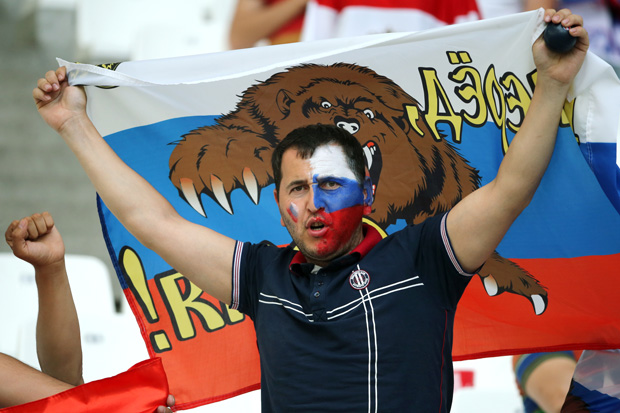Oh those Russians. When they’re not beating up English football fans, they’re cheating at the Olympics. They occupy other countries and shoot down civilian airliners, then pretend it wasn’t them. They’re helping Assad win the Syrian civil war. They’re even driving up London house prices. There’s no infamy, apparently, of which Russians are not guilty.
‘OK — we did do all those things,’ admits a Moscow broadcaster friend, a little sheepishly. ‘But everyone else does them too! We’re the only ones to get punished, because everyone hates us.’
Since the annexation of Crimea in 2014, Russians have become the world’s official pariahs. Russian athletes have been kicked out of the Olympics for doping, their football team was threatened with expulsion from Euro 2016 over fan violence, and there have been calls to take Euro 2018 away from them over bribery. A swath of top Russian officials have been banned from travelling abroad and had their assets frozen by at least three sets of US and EU sanctions — over Crimea, support for rebels in eastern Ukraine, and the 2009 murder of the lawyer Sergei Magnitsky. Russian companies can’t borrow money on international markets.
But there are two problems with demonising Russia and Russians. The obvious one is that the part doesn’t stand for the whole: Russia is a great civilisation currently run by cynical thieves. Almost everything for which the world hates Russia is the work of corrupt bureaucrats desperate to preserve their power and hide their money. The Crimea invasion and the Olympic doping scandal are really about the same thing — Russian officials deciding that they are above international rules, as well as Russian ones.
The second problem is that these guilty men use ‘Russophobia’ as a shield to hide their crimes.









Comments
Join the debate for just £1 a month
Be part of the conversation with other Spectator readers by getting your first three months for £3.
UNLOCK ACCESS Just £1 a monthAlready a subscriber? Log in